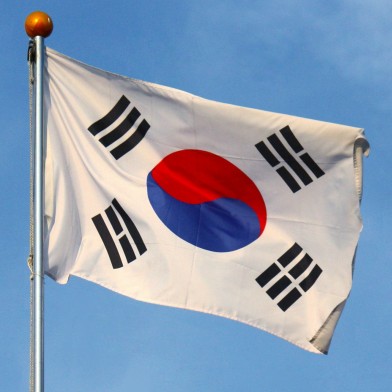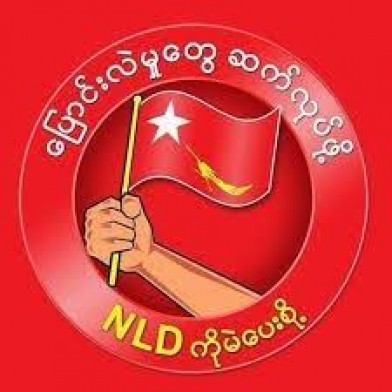It’s looking like 2022 will be a big year in politics across the Asia region – from general elections to scene-setting state elections and leadership changes, we take you through some of the key upcoming races and catch you up on the ones that have passed.
UPCOMING ELECTIONS
Philippines (general elections) – May 9
In February, the Philippines' three-month campaign period began, in an election race full of powerful names. Every six years, the Philippines elects its president, vice president and senators. Presidential candidates nominate their running mates, but the president and vice president are elected separately in a first-past-the-post system.
In the Philippines, a president can serve one term of six years, then becomes ineligible to run again – meaning current President Rodrigo Duterte will be leaving power.

Vice-presidential candidate Sara Duterte-Carpio and her father, Rodrigo Duterte, the current president.
So far, the race is boiling down to two candidates: first, Ferdinand “Bongbong” Marcos Jr, son of the late dictator Ferdinand Marco, and a former governor, congressman and senator. Marcos Jr has named Sara Duterte-Carpio, the current mayor of Davao and President Duterte’s daughter as his candidate for vice president. The two running mates would be joining together two powerful families in the world of Filipino politics.
Facing off against Marcos Jr is current Vice President Leni Robredo, the leader of the opposition and the only female presidential candidate. She has chosen lawyer and senator Francis Pangilinan as her running mate.
Read more on the political scene here:
Keeping up with the Dutertes
Factbox: Key contenders for the Philippines' 2022 presidential election I Reuters
Thailand (local Bangkok elections) - May 22
Bangkok will be going to the polls in May to vote for its governor and councillors to represent its 50 districts. This will be the first time the vote has happened since 2013 – in 2014, a coup put a freeze on all local and national elections.
In a race that could shape the general elections in 2023, independent Chadchart Sittipunt is the favourite to win the governor seat – a recent poll found around 38 percent would vote for him, with the next most popular candidate being the current governor, Aswin Kwanmuang on roughly 12 percent. Aswin was originally appointed to the role by the military junta but has joined the race as an independent.
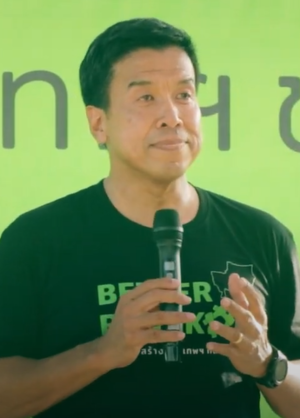
Chadchart Sittipunt, the independent frontrunner in the Bangkok governor election race.
Thailand’s leadership has been the focus of many international headlines over the last two years, as anti-government protests erupted, calling for a reform of the monarchy and the country’s democracy.
The current prime minister, Prayut Chan-o-cha came to power in the 2014 military coup. His own potential candidacy for any upcoming general election is currently under scrutiny: according to Thailand’s 2017 constitution (sponsored by the military), a prime minister cannot be in power longer than eight years: but does eight years start from when Prayut came to power, or from when the 2017 constitution was brought in?
Hong Kong (chief executive selection) - May 8
While not technically an election, Hong Kong will potentially see a change of leadership on May 8 when the city’s 1500-strong Election Committee will look to select a new chief executive after postponements due to Covid. The nomination period for the role will open in April, but candidates have been slow to emerge - and a leadership change is coming as current chief executive Carrie Lam has announced she will not be seeking a second term.
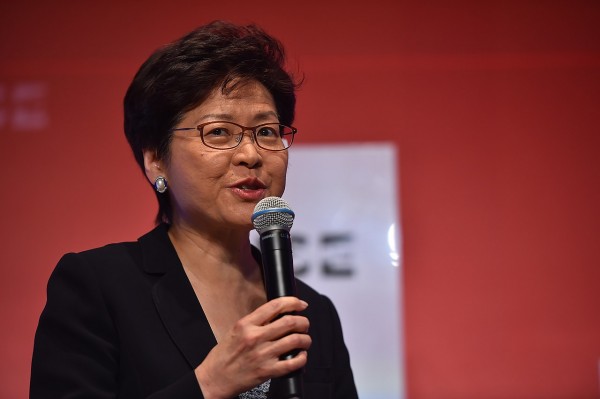
Carrie Lam, current chief executive of Hong Kong, has been quiet on whether she will seek to continue her role at the next Election Committee selection. Image: Wikimedia Commons
Hong Kong has faced political turmoil these last few years: controversial restructuring of its electoral processes have been widely seen as China exerting stronger control over the governance of Hong Kong.
For details on these electoral changes and reactions, check out our previous stories:
Beijing announces plans for electoral reforms for Hong Kong
Arrests, lockdown and exodus begins in Hong Kong as changes continue into 2021
Explainer: Mass resignation of Hong Kong's opposition lawmakers
Nepal (general elections) - November 2022
After local elections happen on May 13, the government and Election Commission will decide the date for the general election, which is expected to be held in November 2022.
Parliamentary terms last five years in Nepal, with the last election held in 2017. In Nepalese general elections, people vote to elect the 275 members of the House of Representatives. From there, the Nepalese president appoints the leader of the majority party as prime minister.
In 2017, the Nepal Communist Party took power: a party formed in the wake of the election from the Communist Party of Nepal – United Marxist-Leninist (CPN-UML) and the Communist Party of Nepal (Maoist Centre). K P Sharma Oli was ultimately appointed prime minister.
However, Nepal faced political uncertainty as internal conflicts in the Nepal Communist Party fractured its majority and split support. This led to President Bidya Devi Bhandari dissolving parliament in May 2021 on PM Oli’s advice. Nepal’s Supreme Court reinstated parliament in July 2021, ordering that Oli’s political rival Sher Bahadur Deuba of the Nepali Congress party be appointed as prime minister – a position he holds today.
This is the backdrop as Nepal considers its election later this year where the current leading Nepali Congress party will likely be up against the CPN-UM.
PREVIOUS ELECTIONS
South Korea (general elections) - March 9
In early March, South Korea elected Yoon Suk-yeol as its new president, in a tightly run race between liberal candidate Lee Jae-myung from the ruling Democratic Party and Yoon, the opposition candidate from the conservative People Power Party. Yoon will come into power in May 2022, replacing current Democratic Party president Moon Jae-in.
It was a presidential race that was plagued with scandals on everything from corruption to spiritual advisers. During the race, Yoon famously earned the name ‘Korea’s Donald Trump’ following comparisons to the ex-US president’s mannerisms and anti-China stance.
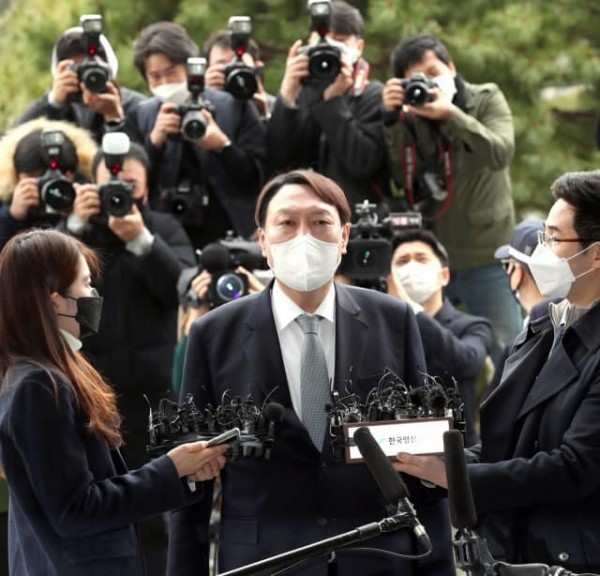
Yoon Suk-yeol, South Korea's new president, was elected in March.
When it comes to foreign policy, South Korea has often faced a tricky balance between the superpowers of China and the US. President Moon has opted for balancing South Korea’s relationships but Yoon’s views differ: rather than balancing between Beijing and Washington, Yoon has said he would pursue a stronger alliance with the US.
For further reading on South Korea’s election, you can read the Asia Media Centre’s explainer here:
South Korea elects Yoon Suk-yeol as president
Malaysia (Johor state election) - March 12
In early March, Malaysia’s Johor state held its election, in a race that will act as a barometer ahead of the country’s general election (which will be held on or before July 2023).
The political coalition Barisan Nasional (BN) and its main component party United Malay National Organisation (UMNO) won the state election with a two-thirds majority. This is a major boost for a “scandal-plagued” coalition ahead of a general election in 2023.
Malaysian politics has been a turbulent scene over the last few years, so here’s a quick bit of context: 2018 saw an overturn of power when the incumbent majority party UMNO (who had been in power for more than 60 years) was voted out in the wake of the 1MDB scandal, to be replaced by the coalition Pakatan Harapan (PH) government.
But that didn’t last: in 2020, the PH coalition government lost its majority due to a political play for power now called the Sheraton Move, which forced then-Prime Minister Mahathir Mohamad to resign. In the following instability, Malaysia’s king appointed a new prime minister based on the backing of legislators: Muhyiddin Yassin. Yassin led the Perikatan Nasional (PN) coalition, with UMNO back as a key coalition partner.
However, Yassin faced similar issues: in 2021, UMNO withdrew its support for the PN coalition amid more political infighting and the coalition lost its majority. Muhyiddin resigned and was replaced by his deputy, Ismail Sabri Yaakob on authority of the king.
Johor’s state election is an indication of how the political turmoil may play out in the polls in 2023 – a general election has been postponed during the political crisis due to Covid.
India (state elections) - March 10
On March 10 around 240 million people went to the polls, as five of India’s nearly 30 states voted on their state leaderships. These elections are seen as a litmus test – India's general election won’t be held until 2024, but current Prime Minister Narendra Modi and his ruling Bharatiya Janata Party (BJP) would have been watching March’s elections very closely for an indication of what to expect.
Of these five states, four voted BJP: Uttar Pradesh, Manipur, Uttarakhand and Goa. One state, Punjab, instead brought the Aam Aadmi Party (AAP) into power.
For Modi, Uttar Pradesh’s election results would have been particularly reassuring. Uttar Pradesh is India’s most populous state with around 200 million people and historically has been the biggest indicator of how the 2024 elections will unfold.
- Asia Media Centre
